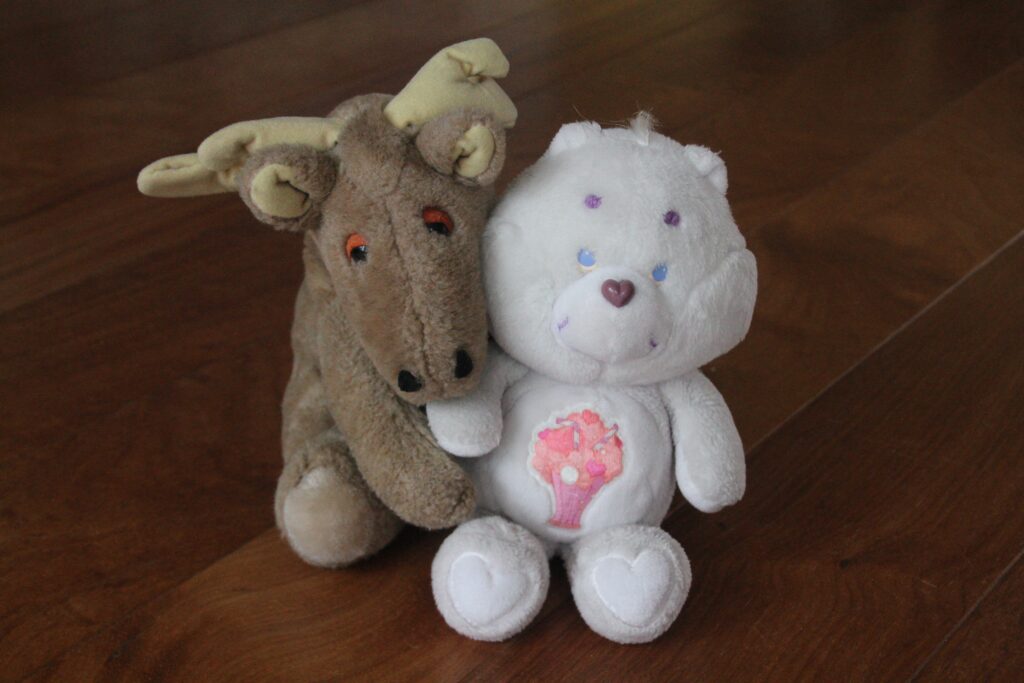The complexities of giving


A surfboard. That is what my seven-year-old is hoping to get from Father Christmas. She also quite fancied a snowboard, until I pointed out the minor snag of the total absence of snow. Stunt scooters, lego, pokemons, bracelets… in the recent weeks we have heard a long list of wishes. The school’s efforts to communicate the true meaning of Christmas have borne some fruit – she brought home a Nativity scene constructed out of bits of cardboard (I dropped Jesus on the floor of the garage) and a picture she had drawn of Jesus in swaddling clothes (‘What a lovely caterpillar!’, said her father). But the presents remain front and centre for her, and for her older sister too. I can’t blame them, as I was exactly the same as a child.
The excitement of a bulging Christmas stocking, the thrill of a pile of presents under the tree, that was the magic of Christmas. As the years went by and my parents’ income increased, so did the number of gifts. Extra stockings were required, and the pile under the tree overflowed, spreading out through the living room. The tradition had always been to open the tree presents before breakfast, sustained by a Christmas biscuit and a glass of juice, but at some point there were so many presents that our rumbling tummies couldn’t hold out any longer, and a breakfast break was introduced.

I can’t pinpoint the exact moment when my delight at the expanding pile turned to nausea. It just all became too much, an obscene amount for an ordinary small family. The cheerful ceremony of opening a gift, thanking the giver, then watching attentively while the next person took their turn, became a turgid test of endurance, trying to keep a smile on my face while inwardly longing for it to be over. We already had so many things that it became a struggle to think up something to give, yet the giving continued. I received a gadget to cut fresh pineapple (I have never used it) and a new wallet (I was happy with the one I already had). The presents also became steadily more expensive. My standard Christmas request for books (which I love) was regarded as very unsatisfactory in this respect, and I had to fight to avoid being given a Kindle (which I would hate). By this time, we exchanged very specific wish lists, so we knew in advance exactly what we would get. A low point was reached when those lists started to include gift vouchers, in effect simply swapping money between our bank accounts.
The troubles multiplied when our children arrived. In vain did we seek to limit the flood of gifts. Sadly, I watched my girls plunge through the vast pile, tearing paper off so many presents that I knew that they could never appreciate them all, and that many would simply become part of the expanding tide of rubble engulfing both girls’ bedrooms. On our departure, my partner would perform the heroic feat of somehow finding room in our hand luggage for everything, stuffing toys into shoes and filling board games with novelty items, while keeping his fingers crossed that the airline would not decide to weigh our bags when boarding.

This year, with corona preventing a physical Christmas meet-up, all presents have had to be sent. The unreliability of the Royal Mail service to the Netherlands and the delivery costs required to get items sent by online shops have combined to deliver a minor Christmas miracle, reducing the number of presents to two or three from each giver. Good, decent presents, things that I know will give my girls pleasure for months to come. Yet, the pile of presents is still going to be large. The reason is me, the traitor within the gates. This year, I have bought more presents than normal, even taking over my family’s role of stuffing the Christmas stockings. Why is that? The answer to that question lays bare the roots of this entire tale.
Presents are much more than just presents. Presents are our way of expressing our love for each other. You see this in the stories of people’s sorrow at being unable to give their loved ones presents this year. Faced with the loss of jobs and homes, consequences of the continual underlying threat of corona, you would think that Christmas presents would not even feature on the list of things to worry about. Yet they do, because of the emotional weight we give them.
In the early years of my childhood, when money was tight, presents represented a financial sacrifice for my parents, and what shows love more than a sacrifice? What is more, they were a symbol for the attention we paid each other, proof of our closeness via our knowledge of each other’s favourite books, the music we loved, the clothing style we preferred. The cuddly moose I fell in love with in a shop, and that my mother quietly noted down to secretly go back and buy, anticipating my overjoyed surprise when, months later, I found it under our Christmas tree. Such joy was the ultimate aim, to make each other happy at Christmas.
As the years went by, we had more money. So, it felt like the presents also had to cost more, to demonstrate the same level of generosity. As we accumulated more and more things, it got harder to find a present that made an impact. I still remember, vividly, the first cuddly Care Bear I received, my ecstasy as I opened the wrapping on my last (carefully disguised) present to find the toy I had longed for. How I received the rest of my substantial Care Bear collection has completely slipped my mind.

Growing up, we moved away from each other. Without daily contact, our knowledge of each other’s likes and dislikes began to fade, then disappear completely as we got older and our tastes changed. New experiences led to changes in our views and lifestyles, which were increasingly in conflict with each other. Instead of spending some of our precious time together arguing, we papered over the cracks, resulting in polite but tense weekend visits, with a pleasant veneer maintained by never discussing anything of importance. As one writer describes, often the true reason for receiving gifts we don’t like is that we haven’t maintained the relationship well enough for the giver to truly know us. The physical distance had turned into an emotional distance, and we were increasingly becoming strangers to each other.
As that distance made it harder to give meaningful presents, so, paradoxically, the importance of those presents grew. In particular, as a way for my family to bond with their nieces/grandchildren. With contact limited to a handful of weekends a year, it was essential for them to ensure that, in the short time available, they could make them happy. The easiest way to do that with a child is to give them gifts. Yet with every gift given, that joy is watered down. I could see the disappointment on my family’s faces when a present was opened and the expected reaction didn’t materialise. Living with our children all the time, my partner and I didn’t need to rely on gifts, as we had the privilege of seeing those flashes of joy when they occurred completely spontaneously, when our daughters found a worm in the garden, when they built a theme park in their bedroom, when they collapsed in laughter at me accidentally using a Dutch word in the middle of an English sentence (they still won’t let me forget it).

What is my excuse, then, for my surge in present-buying this year? I don’t need it to communicate my love for my girls or to see happiness on their faces. But, this year, there is an added significance to the presents. So much has been taken away from my daughters in the last nine months. The school football tournament, Scouting camps, family visits, and now even the festive ending of the school year. It feels as though Christmas has been stolen from them. I can’t give them their grandparents for Christmas, I can’t give them a boisterous Christmas lunch with their class, I can’t even give them the assurance that it will get better soon. Faced with all these things that I can’t give them, I fall back on what I can give them – presents.
So now, finally, I understand what lies behind my family’s pile of Christmas presents. An expression of deep love, an attempt to hold on to the family closeness of childhood, a proxy for all the things they want to give but can’t. No wonder it resisted all attempts at limitation. Instead of complaining about it, perhaps my energy is better spent trying to find how we can bridge that distance between us. It’s a challenging task but, unlike the corona virus, it is something that it is in our power to solve.